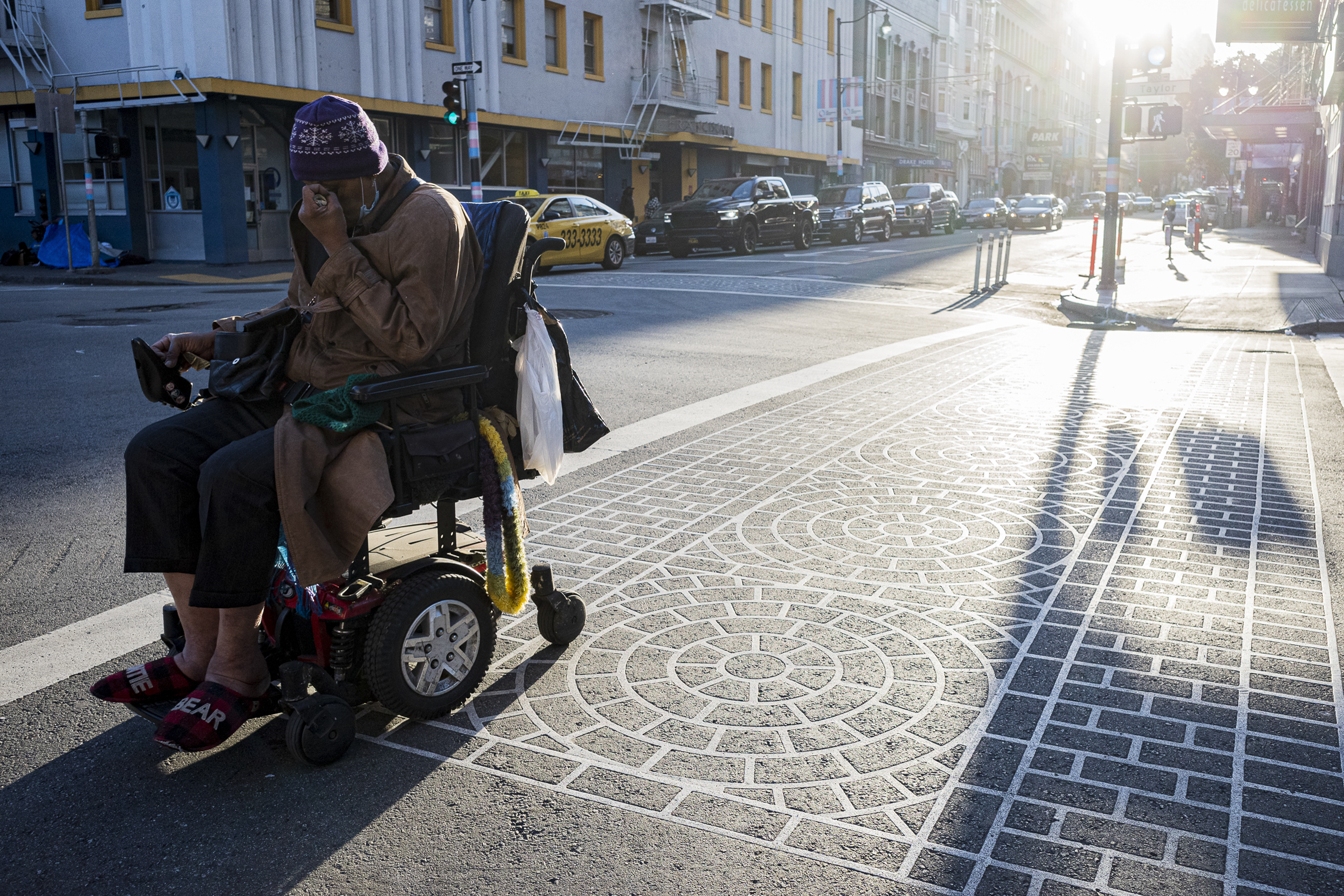At over eight and a half hours, the Board of Supervisors meeting Tuesday touched the bases, from tackling the ongoing response to the Tenderloin overdose crisis and passing legislation to make it harder to develop microunits to an earful of comments on other issues.
The Evolving Tenderloin Emergency Response
The board held another hearing on Mayor London Breed’s emergency declaration on crime and drug overdoses in the Tenderloin, as the city’s response has come to a turning point.
The declaration expires Mar. 17, but the mayor filed a supplement enabling continued employment of disaster service workers at the linkage center—for a limited time. This will enable an orderly transition to regularly assigned personnel taking over that work, according to a spokesperson for Mayor Breed.
Meanwhile, some supervisors responded to a false perception that the change meant operations under the declaration would end.
Supervisor Matt Haney, whose District 6 includes the Tenderloin, thanked Mayor Breed for the proclamation but added that the Tenderloin “was clearly still in a state of public health emergency.”
“If we are ending the emergency, that’s not something I support. We are still in as much of an emergency as we were three months ago,” Haney said, citing continued concerns over open-air drug dealing and other issues. He added that “a lot of work has been accomplished that could not have been done without the declaration.”
Supervisor Ahsha Safai echoed Haney’s concerns and expressed a desire for a greater police presence along the lines of what was deployed at Union Square in response to organized retail thefts.
Some three hours into the hearing, Department of Emergency Management Director Mary Ellen Carroll clarified the situation. “The Tenderloin Emergency Initiative is still ongoing,” she said.
Carroll and other city staffers delivered a series of presentations outlining indicators of what has been accomplished so far, as well as next steps.
So far, the linkage center has had more than 15,000 visits, yielding over 3,000 service referrals. Thirty-five overdoses were reversed thanks to Narcan. Hours are expanding, with a goal of 24/7 operations, and the center now provides three hot meals a day. On the personnel side, the Department of Public Health has completed 80% of its staffing goals and expects to reach 100% by month’s end.
Supervisors, nevertheless, wanted more information. Safai noted that metrics were still more about processes than outcomes. Others focused on a lack of more tangible results.
“Something is not working, but not for the lack of trying,” said Supervisor Hillary Ronen, whose District 9 has experienced more open-air drug dealing and related incidents than other areas of the city. Department heads cited lag time in obtaining relevant metrics as one issue in the response.
Supervisor Catherine Stefani expressed continued concerns over a lack of abstinence-based solutions at the linkage center, which prompted staffers to point out that a “sober living room” facility would soon be made available.
Superior Dean Preston focused on the role of police. During an earlier discussion it was revealed that an increase in police presence in the Tenderloin is on its way—using existing funds not related to the emergency declaration. Carroll said that input from neighborhood outreach showed residents have been asking for more police. Preston continued to criticize the move, noting reports of significant increases in use of force by police during the emergency, as more than 70% of arrests have targeted people of color.
Mayor Breed’s declaration was referred to the Public Safety and Neighborhood Services Committee to provide continued oversight.
Housing: Microunits vs. SROs, and more
Concerns over “microunit” housing, such as 450 O’Farrell St., now the subject of a lawsuit against the city, prompted Supervisor Aaron Peskin to introduce two bills, one of which passed unanimously today.
The bill redefines “group housing,” which up until now had allowed for the development of small efficiency apartments, including “microunits.” Peskin maintains this incentivizes conversion of low-income Single Room Occupancy (SRO) hotel housing. He reiterated comments made at Land Use Committee, describing the former definition as “muddy and confusing.”
The new definition is similar to dormitory housing, replacing a provision for limited kitchen facilities in individual units with group kitchen facilities for every 15 units, among other changes. Peskin cited work by the Planning Department, as well as research on best practices for group housing by the California College of the Arts, as justifying the changes.
Trailing legislation for this item banning group housing in the Tenderloin and Chinatown will likely be heard by the full board next week.
Parole for Parklets
Another Peskin bill giving businesses more time to bring parklets into compliance with the new Permanent Shared Spaces program also passed unanimously. Parklets out of code—apart from major issues such as disabled access—won’t be fined until next April.
Before the vote, Peskin said the ordinance would “offer more certainty to small businesses” currently transitioning to the permanent program. He noted that the city will reach out to permit holders to work toward full compliance by 2023.
Mayor’s JFK Drive Ordinance
Earlier Tuesday, Mayor Breed introduced an ordinance to keep JFK Drive in Golden Gate Park car-free. Callers in support dominated the over hour-long public comment period at Tuesday’s meeting.
Todd David, of the Housing Action Coalition, joined a return to in-person public comment in the board chambers to thank supervisors for opposing a bill from Assemblymember Marc Berman (D-Palo Alto) that would exempt housing created under the state’s Density Bonus Law from affordable housing impact fees.
“Your opposition will help to solidify support for our legislation,” David said.
Roll Call: Sex and Politics
New business included a resolution by Supervisor Connie Chan condemning the use of what she called “racist imagery” in recent political placards appearing to appropriate Communist themes. Supervisor Rafael Mandelman introduced an ordinance that would create an Adult Sex Venue classification in the planning code in order to reduce restrictions on bathhouses and similar businesses in LGBTQ+ cultural districts.
